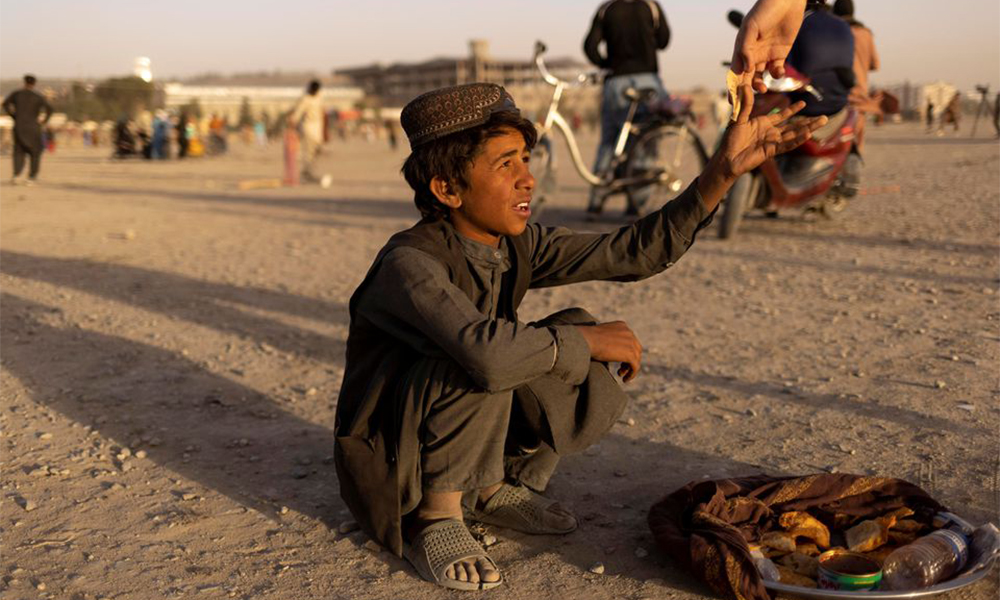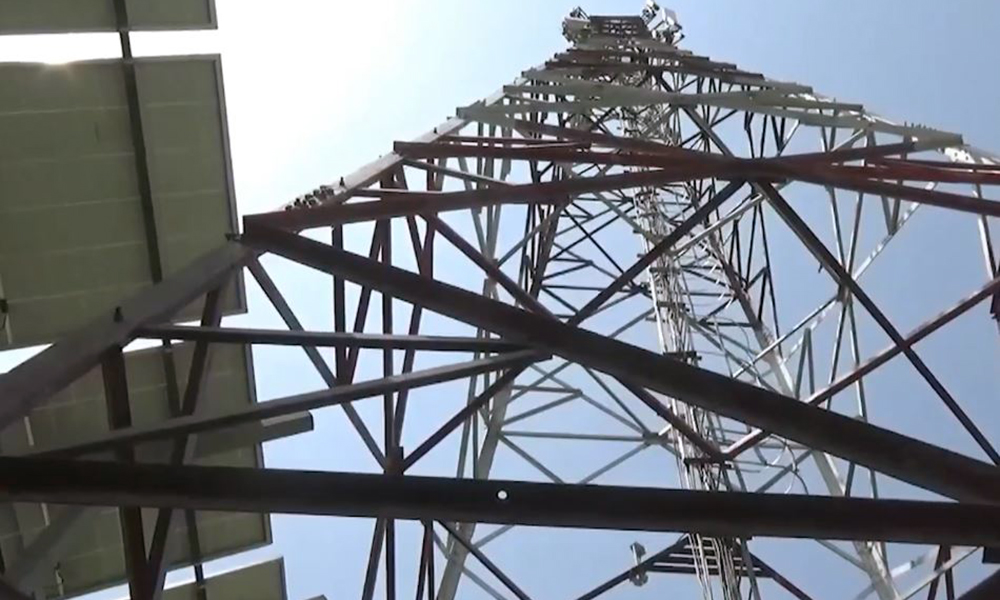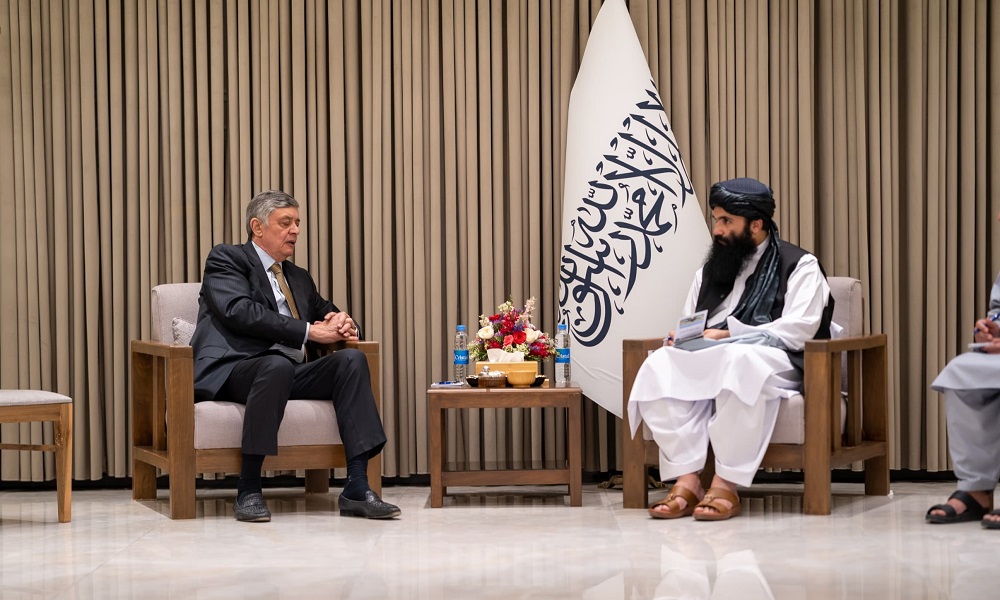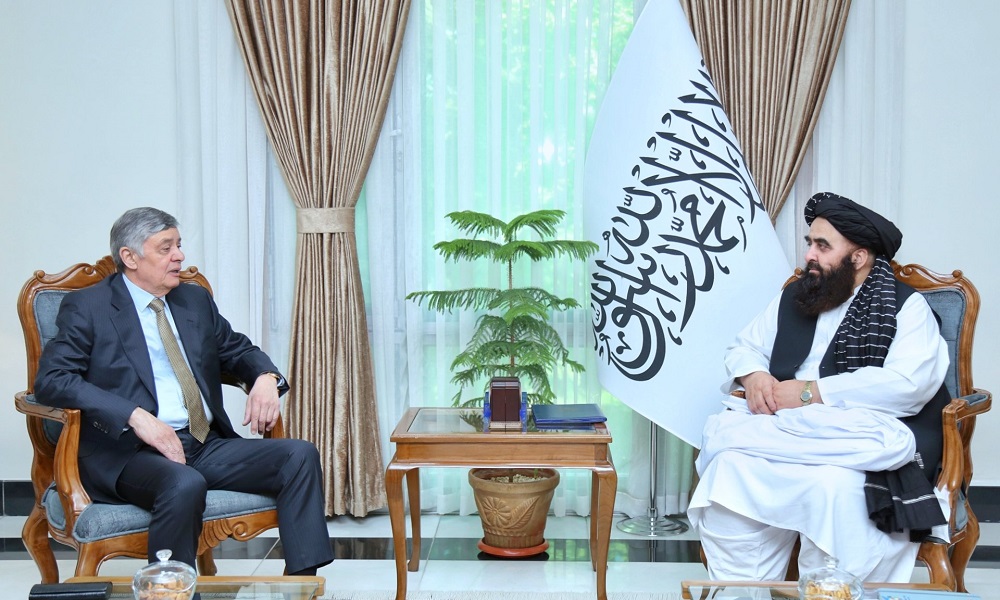Latest News
IRC warns of growing crisis in Afghanistan amid aid funding cuts

The International Rescue Committee (IRC) has warned that cuts to humanitarian aid for Afghanistan have contributed towards a 60% increase in the number of people in need of assistance, alongside economic challenges, climate change, and reduced access to basic services.
Just 23% of required funds for this year’s humanitarian response plan have been received, the IRC said in a statement Tuesday.
However, the organization stated that despite major obstacles, the humanitarian response has successfully averted famine for the past two winters in a row thanks to donor commitment to sustaining support for Afghan civilians.
“The significant scale-up of the humanitarian response has brought the number of people on the brink of famine down by nearly 3 million this year alone – a remarkable feat that helped young children, who are most vulnerable during a food crisis, especially,” the statement read.
Salma Ben Aissa, IRC Afghanistan Director, said: “Since August 15th 2021, Afghanistan has continued to suffer from a rapid economic collapse. Ordinary Afghans have paid the price; people who previously had jobs and were self-sufficient are now reliant on humanitarian aid and many families can no longer afford to feed themselves.
“Two years later the economy remains cut off from international systems and 28.8 million people require humanitarian assistance, while nearly the entire population lives in poverty. Almost 80% of those in need are women and girls,” she said.
According to her, steps by the international community to expand and support the delivery of humanitarian aid, including through extensive sanctions exemptions, have saved countless lives.
“This year, in the face of significant challenges humanitarian actors have been able to maintain and expand their activities to deliver life saving assistance to over 17 million Afghans,” she said.
However, she stated that despite the successes achieved, the IRC is growing “deeply fearful for the future of the humanitarian response in Afghanistan in the face of continued funding shortfalls, which put millions of lives at risk.”
“This is a critical moment for Afghanistan; donors should commit to supporting the humanitarian response in a long-term and flexible manner to ensure assistance continues to reach those that need it most, and that Afghans are able to stand on their own two feet. Without this commitment, millions will continue to face hunger and an uncertain future,” she said.
Latest News
AWCC activates new site in Nangarhar’s Kuz Kunar district
Residents of Kuz Kunar expressed happiness over gaining access to telecom and internet services and called for the further expansion of such services across Nangarhar.

Officials from Afghan Wireless Communications Company (AWCC) say they have activated a new site in the Kuz Kunar district of Nangarhar province.
According to AWCC representatives, the launch of this site has provided thousands of families with access to telecommunication and internet services.
They added that Afghan Wireless will also soon launch 4G internet services in the area.
Meanwhile, officials from Nangarhar’s Department of Telecommunications and Information Technology stated that efforts are underway to expand telecom services to other remote areas of this province.
Rahimullah Shinwari, head of the ATRA (Afghanistan Telecom Regulatory Authority) office in Nangarhar, said that with the activation of the new AWCC site, 25,000 families will now have access to telecom and internet services.
Residents of Kuz Kunar expressed happiness over gaining access to telecom and internet services and called for the further expansion of such services across Nangarhar.
In recent years, AWCC has extended its telecom and internet services to many remote areas across the country.
Latest News
Moscow’s move a ‘significant step toward recognizing Afghanistan’s political realities’, says Haqqani

Acting Minister of Interior Sirajuddin Haqqani on Wednesday met with Zamir Kabulov, Russia’s special envoy for Afghanistan, and Dmitry Zhirnov, Russia’s ambassador to Kabul.
Haqqani expressed appreciation for Moscow’s recent decision to remove the Islamic Emirate from its list of terrorist organizations. He described the move as “a significant step toward recognizing the political realities of Afghanistan.”
In a statement, the interior ministry said that both sides emphasized the importance of upgrading diplomatic relations to the level of embassies and reaffirmed their commitment to mutual cooperation in the fields of security and trade.
During the meeting, the two parties also discussed regional and bilateral cooperation in the areas of security, economy, and commerce, and stressed the need to strengthen ties between the two countries.
Latest News
Special meeting will be held to launch Afghanistan–Russia joint commission, says Kabulov

Zamir Kabulov, Russia’s special envoy for Afghanistan, on Wednesday met with Afghanistan’s Acting Minister of Foreign Affairs Amir Khan Muttaqi in Kabul and said a special meeting will be held on the sidelines of the Kazan Forum to officially launch the permanent joint commission between Russia and Afghanistan.
According to a statement issued by the Afghan foreign ministry, Kabulov said that expanding relations with Afghanistan is important to Russia, and for that purpose, Moscow has taken steps to remove obstacles in the path of developing bilateral ties.
This comes after Moscow last week removed the Islamic Emirate from their list of militant organizations.
During the meeting, Muttaqi expressed appreciation for Russia’s recent move to remove the IEA from its list of banned organizations and stated that the Islamic Emirate will soon appoint a diplomat at the ambassadorial level to serve in Moscow.
The two sides also discussed enhancing bilateral relations between Afghanistan and Russia, expanding economic and trade cooperation, and addressing certain regional issues.
The 16th International Economic Forum “Russia – Islamic World: Kazan Forum” will be held from May 13 to 18 in the city of Kazan, Russia. Afghan products and goods will be showcased at the event.
-

 Sport5 days ago
Sport5 days agoAfghanistan qualify for U19 Cricket World Cup 2026
-

 World4 days ago
World4 days agoThousands of protesters rally against Trump across US
-

 World5 days ago
World5 days agoIran, US end nuclear talks in Rome, agree to meet next week
-

 Latest News4 days ago
Latest News4 days agoPolio vaccination campaign launched in Afghanistan
-

 International Sports4 days ago
International Sports4 days agoIPL 2025: 14-year-old Vaibhav Suryavanshi becomes youngest IPL player
-

 International Sports2 days ago
International Sports2 days agoIPL 2025: Robo-Dog ‘Champak’ explained
-

 Latest News3 days ago
Latest News3 days agoChina invites various Afghan delegations to attend Shanghai forums
-

 Latest News3 days ago
Latest News3 days agoAriana Afghan Airlines increases flights to China
























